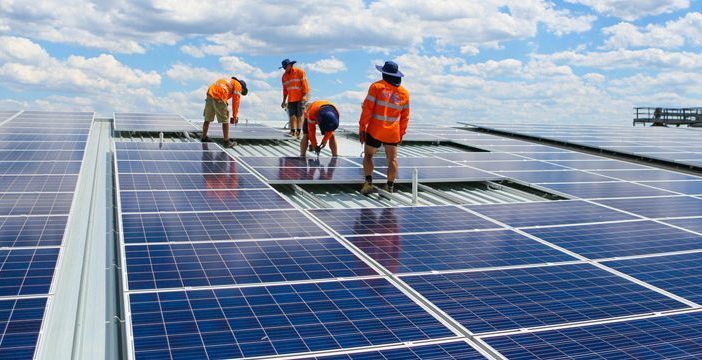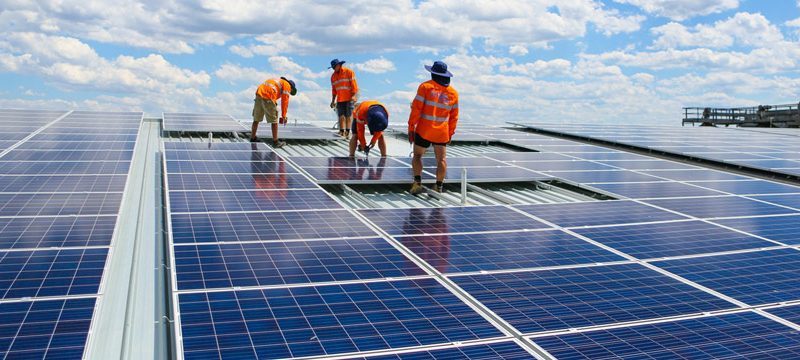
The Clean Energy Council has slammed the Queensland government for the “complete lack of clarity” on its rule change for large solar installations, less than a week before the new – and potentially devastating – regulation is set to be introduced.
In its second formal statement on the controversial subject in as many working days, the CEC said that the Labor Palaszczuk government had “contradicted its own advice to the industry about how the regulation should be interpreted.”
The apparent contradiction was made on Friday by Queensland’s minister for industrial relations, Grace Grace, who said both licensed electricians and their apprentices would be able to mount, locate, fix or remove solar panels on projects of 100kW and above, under the law, starting May 13.
This is slightly different – and perhaps ever so slightly less devastating – than One Step Off The Grid’s original understanding of the rule change, which was that such work would be restricted to fully qualified electricians only.
And, as it turns out, it is also different to the version industry says it was originally given by the government, which means they are now both angry and confused – and more convinced than ever that the rushed amendment should be halted in its tracks.
“At a briefing with Queensland government officials on 17 April, about 40 industry representatives were told that only licensed electricians could do this work – and that this didn’t include apprentices,” the CEC’s director of energy generation, Anna Freeman, said in a statement on Monday.
“Now the government is advising via correspondence and guidance notes on its web site that apprentices can do this work. What advice should we be following?
“Furthermore, on Friday …(Minister Grace) also flagged in an interview that there could be further changes this week after a meeting with Master Electricians.
“Some of the projects being affected are highly complex and worth hundreds of millions of dollars, and can’t just change major workforce decisions at the eleventh hour,” Freeman said.
Already, the industry is well shaken up, with a number of companies working in the commercial sector in Queensland – where the majority of jobs are installations larger than 100kW – telling One Step that the rule change would make many jobs unviable, raising installation costs by up to 20 per cent.
They have also argued that there is no safety-based justification for the rule change, with little to no danger – and no evidence – of electrocution to unlicensed workers lifting, mounting and installing PV panels.
Indeed, a list of 13 reported “incidents” on big solar sites provided to One Step by the department of industrial relations – and used to help justify the rule change – shows that most of that number were in fact licensed electric workers, and not “backpackers” or so-called unskilled “roof monkeys.” One incident involved an electrical apprentice.
A number of solar business owners who spoke to One Step said the idea that lifting and mounting solar panels was high risk or dangerous work was so absurd that they suspected it was being used as a way to slow the industry down.
“It will just significantly increase the cost, significantly increase the process – and even if you could afford all of that, there just wouldn’t be enough capability,” said Todae Solar CEO Danin Kahn.
“It’s like saying that when we build a house we need licensed electricians to even lay the bricks.
“There wasn’t proper consultation carried out in this process. This is just a cheap way of curtailing growth of large-scale solar.”
And on this, the CEC agrees.
“This is chaos,” said Freeman. “We are less than one week out from a major change and there is a complete lack of clarity as to how this regulation should be interpreted.
“Now would be a good time to press pause on this rushed process so we can sit down with the Queensland Government and work this through. Safety is our highest possible priority, and we are confident we can come up with something together that will be less damaging to our industry.”

Sophie is editor of One Step Off The Grid and deputy editor of its sister site, Renew Economy. Sophie has been writing about clean energy for more than a decade.



